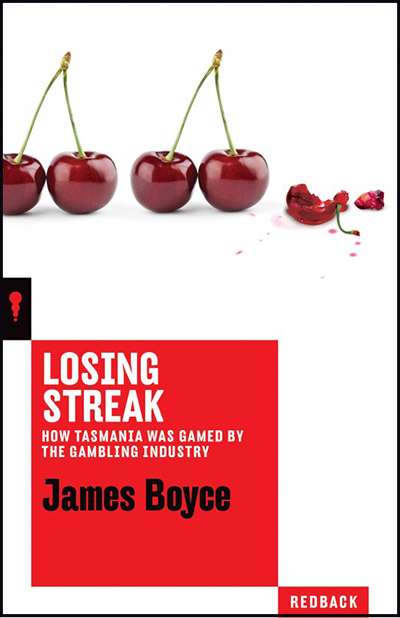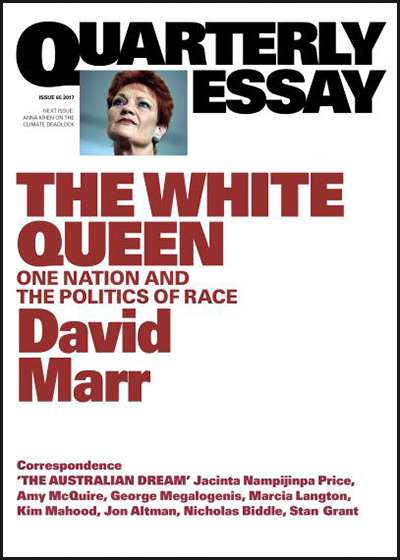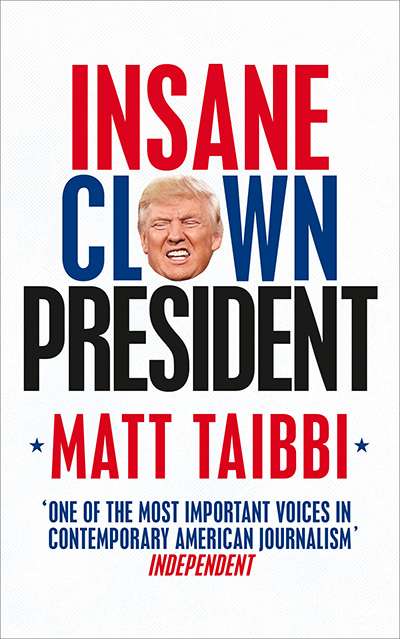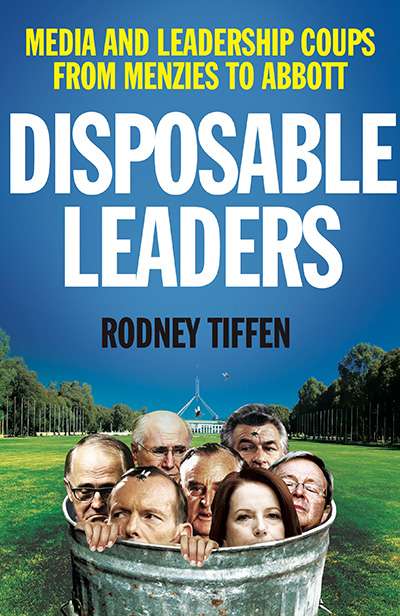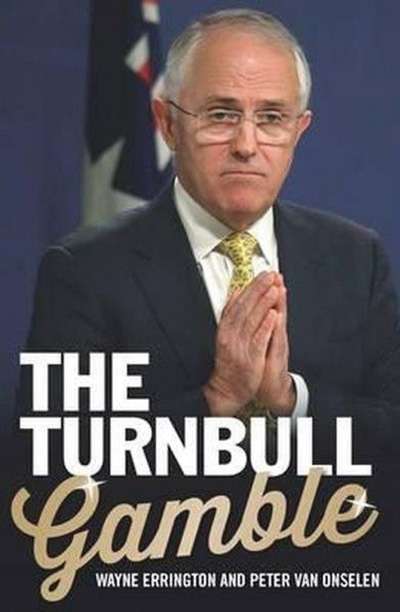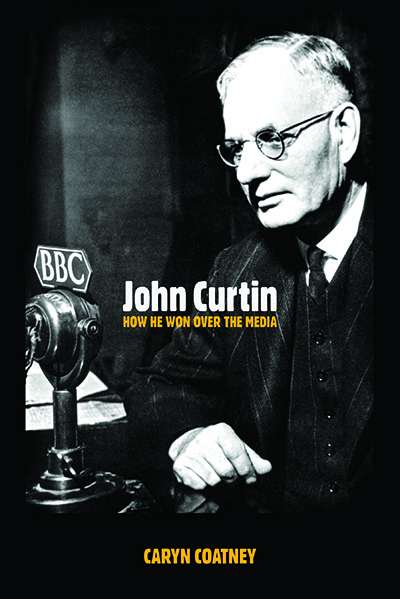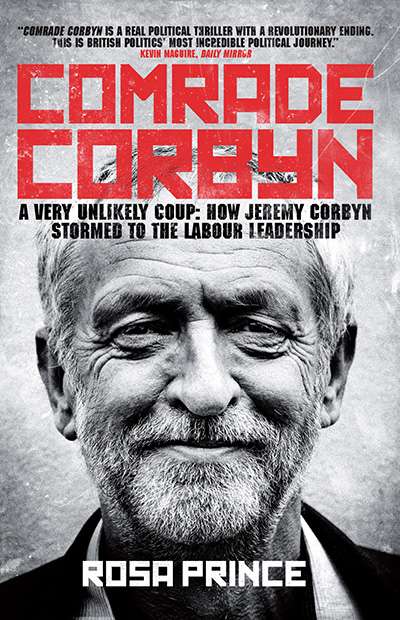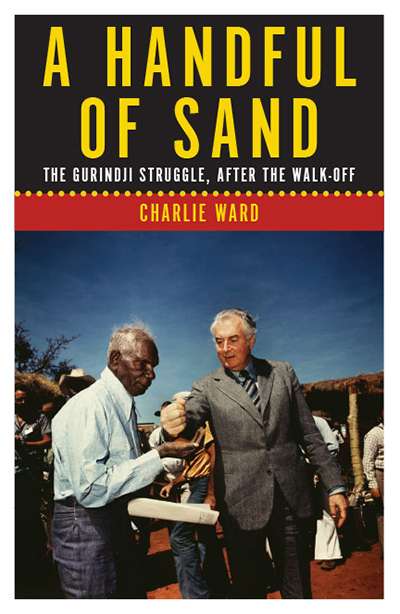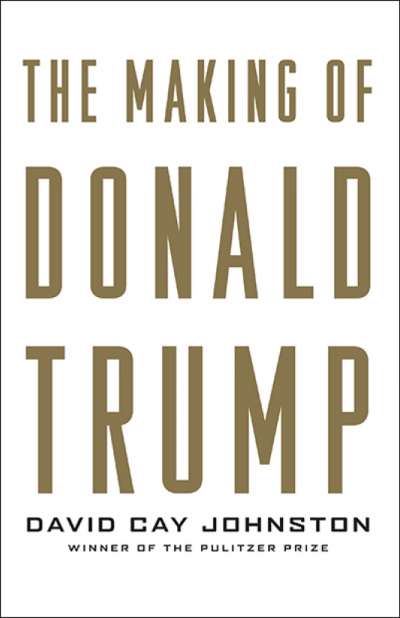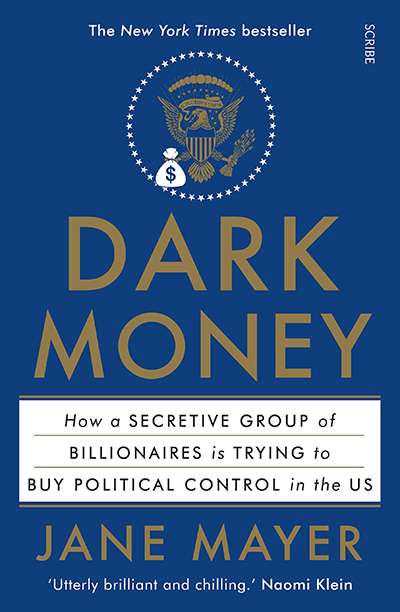Politics
Losing Streak: How Tasmania was gamed by the gambling industry by James Boyce
Gambling is part of Australia’s self-definition. The way we like to tell the story, lads at Gallipoli went over the top with a two-up kip in one hand and a rifle in the other, while exchanging tips for the Melbourne Cup ...
... (read more)The White Queen: One Nation and the politics of race (Quarterly Essay 65) by David Marr
David Marr’s interlocking identities as consummate essayist, journalist of forty-five years, ferocious biographer, and staunch cosmopolitan increasingly eclipse his subject. He wears the condition honestly and inelegantly. ‘I’m a grumpy old guy who hasn’t found in twenty years another big life worth writing’, he remarked in his ...
Insane Clown President by Matt Taibbi & How The Hell Did This Happen? by by P.J. O’Rourke
Beneath a frantic veneer of normalcy, American politics is not okay. It is as if Punch and Judy have careened out of a dive bar, tripped down the rabbit hole, smashed head-first through the looking glass, and found themselves running all three branches of government. Core to this is that unlikely combination of words, President Donald Trump.
...Disposable Leaders: Media and leadership coups from Menzies to Abbott by Rodney Tiffen
When Australia’s living prime ministers attended the funeral of Gough Whitlam in 2014, there were considerable difficulties in taking the official photograph. Rather than grouping them in order of seniority, the photographer carefully separated Malcolm Fraser from John Howard; Bob Hawke from Paul Keating; Kevin Rudd from Julia Gillard. Animosities within ruling pa ...
The Turnbull Gamble by Wayne Errington and Peter van Onselen
After he crossed the Rubicon, Julius Caesar marched on Rome and imposed an authoritarian rule that would alter history. The way in which Australia embraced ...
... (read more)John Curtin occupies the top tier in the pantheon of Australian national leaders. ‘Expert’ rankings of former officer holders – a practice lately imported from the United States, where ...
... (read more)In an extraordinary year for British politics the gloriously unexpected triumph of Jeremy Corbyn in the Labour Party’s leadership election in September 2015 probably ranks ...
... (read more)A Handful of Sand: The Gurindji struggle, after the walk-off by Charlie Ward
The iconography of Indigenous land rights in Australia is fundamentally deceptive. Take, for example, the famous photograph of Prime Minister Gough Whitlam pouring red ...
... (read more)This is an angry book. David Cay Johnston has been doing investigative reporting on Donald Trump's business practices for nearly three decades, and this book is a compilation of ...
... (read more)Dark Money: The hidden history of the billionaires behind the rise of the radical right by Jane Mayer
When I arrived in America, green card in hand, I soon got down to my favourite pastime: discussing politics over grain-based liquor. I was surprised to find that President Barack ...
... (read more)
